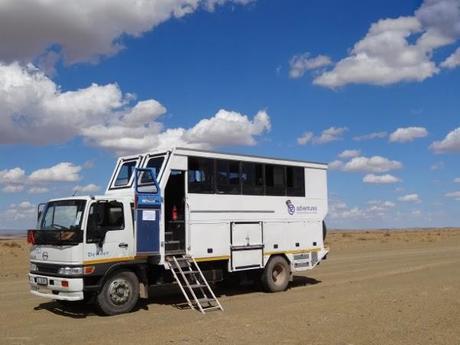 When we announced our 2014 Mystery Destination as a three-week camping safari in southern Africa, we had a pretty amazing response from readers who were looking to do something similar in the future.
When we announced our 2014 Mystery Destination as a three-week camping safari in southern Africa, we had a pretty amazing response from readers who were looking to do something similar in the future.One reader in particular asked us to put together a post about what a participation camping tour is like in terms of the jobs and duties required, as this one feature about camping safaris is a big turn off for some travelers.
From our experience on our tour, the participation component of the experience was minimal. Although some jobs on the rotating schedule were more tedious than others, hardly any of them detracted from the experience as a whole and sound more time consuming initially than they really are.
So what all can you expect to do?
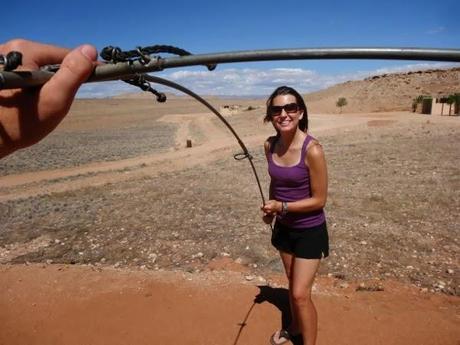
In our own tour, we had five distinct groups that rotated throughout the journey: Kitchen, Dishes, Truck/Cooler, Packing, and Camp Site.
These tasks were assigned to groups of 3 to 4 travelers (out of 17) that rotated jobs throughout the trip. In addition to these tasks, each individual traveler was also responsible for setup and tear down of their own tent and cleaning their own dishes after dinner each night.
Kitchen Team - Responsible for helping prepare meals during the day.
Breakfasts were almost always cereal and boxed items and did not require any work. Brunch, Lunches, and Dinners typically amounted to chopping a salad and sometimes cooking a meat (although this was often done by the guide and driver).
Occasionally a group would be responsible for a full meal prep (brunch was the worst) and required a bit of time commitment. Other times a group would get lucky and the lunch would be pre-made and not require any work. As most meals vary depending on the guide, your level of work could change drastically.
Downsides: Many times the kitchen team would be called immediately after arriving to the campsite and would have no downtime to enjoy a shower or pool before sunset.
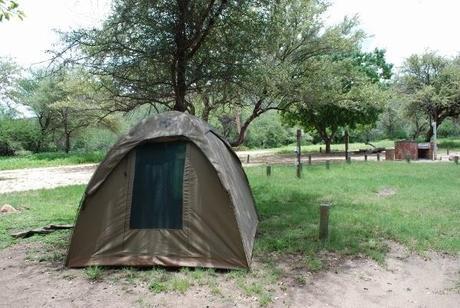
Dishes Team - Responsible for doing dishes from the day other than personal plates and cutlery which were on your own.
Like the Kitchen team, sometimes the dishes team would get lucky if the meals were pre-made and other times would have a huge set of dishes to do if there was a multi-course meal being served. Much like the previous task, this chore is directly tied to how many pots and pans your guide uses to make the meal of the day.
Downsides: Dishes always appear out of nowhere because a previous group forgot to do them or a campsite the day before was not equipped for washing. So extra dishes were always sitting around.
Truck/Cooler Team - Responsible for cleaning the truck and buying ice for the cooler.
This was one of the easiest jobs unless the campsite was muddy from severe rain. In southern Africa the truck would often get full of sand from the desert which was easy to sweep up unless wet.
The cooler box was always easy to fill with ice even though required a monetary contribution (~$5 total, or $1-2 per person each time) and we never encountered a major spill that required elaborate cleaning inside the cooler, thankfully.
Downsides: Cleaning a rainy, dirty truck takes a bit of time and only lasts for a few minutes. When this happens many people often adopt a "why bother" or "don't you dare go on the truck" mentality.
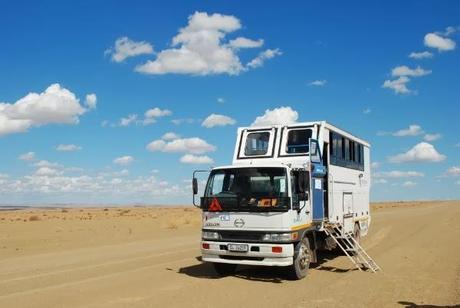
Packing Team - Responsible for loading and unloading the truck.
Out of all of the items on the participation list, this one was by far the most common to just be a group chore.
The packing team was typically responsible for loading and unloading the truck at the campsites including the tent bags, chairs, tables, and other kitchen supplies as needed. The trick with this one is figuring out how to cram all the supplies back into the truck, which is most often like a Jenga game gone wrong.
Downsides: As everyone gets their tents pitched and torn down at different speeds, other groups tend to help with this and may often be bitter at doing extra work even when not asked.
Camp Site Team - Responsible for cleaning up the camp site and helping out with picnic lunches.
Cleaning up the campsite each morning before departure is typically an easy chore if you have a good group, and helping out with picnic lunches is hit or miss depending on if you are actually stopping anywhere.
Downsides: None, this was the easiest job.
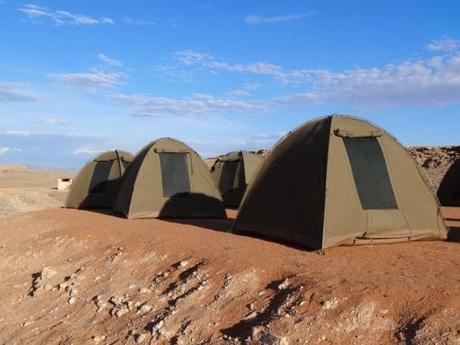
Overall, participation camping was not a downside to our travel experience, as putting up our own tents, helping out with chores, and doing a few extra tasks was very minimal from what we had expected.
The worst job was by far the kitchen team as we were often called to help cook immediately after a 10 hour bus ride, tent pitch, and excursion such that we hardly had time to do any unwinding that day. Luckily the time required for kitchen duty is minimal, and on a three-week safari we were only on it about 4 times due to the rotation schedule.
Although we did not mind participation camping, we will not be doing it again any time soon. Our group was absolutely miserable, with several people refusing to put in their share, and a few others made it their duty to harass anyone who was not keeping up. As the group often has the biggest impact how the chores get done, your experience can differ incredibly.
Have you been on a participation style safari tour in Africa? How did your chores stack up compared to our list? Did you have a favorite or least favorite activity? Comment below to join the discussion!



